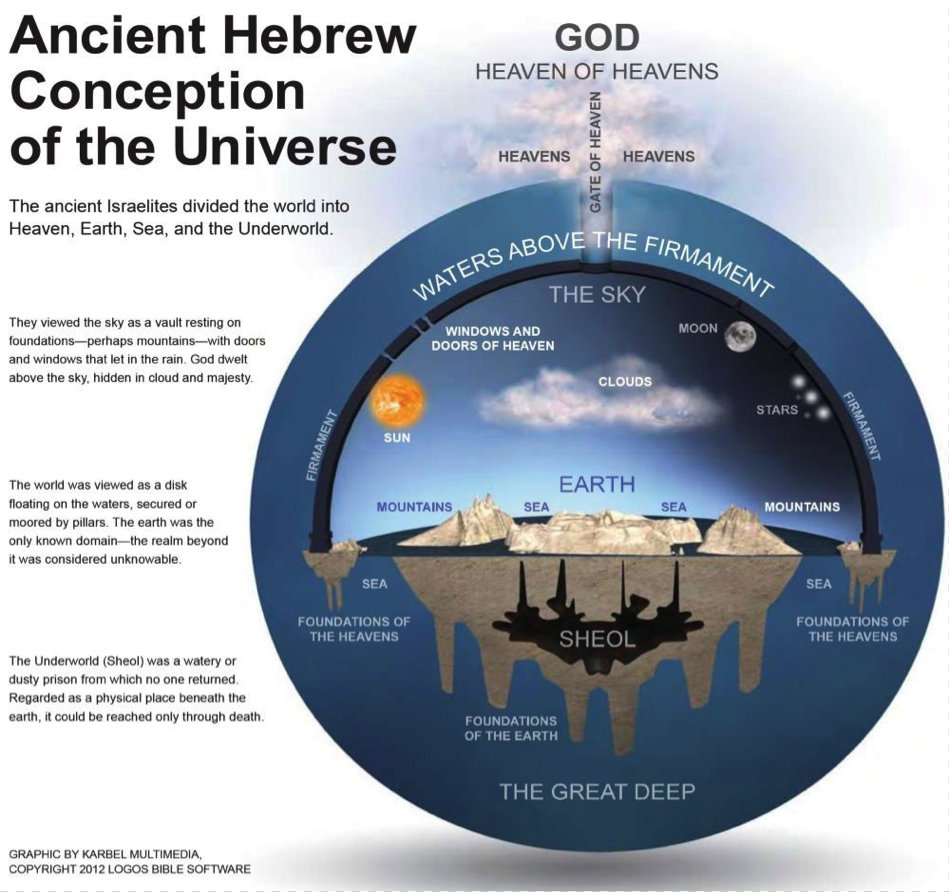
Why do some claim that Genesis 1 describes the universe when the author shows no knowledge of our solar system much less the universe?
Tcg
Moderator: Moderators

I have said before that 'metaphorically true' means 'not true at all'. The idea that those old writers who could not get get their facts right were somehow in tune with some mystical understanding that one day science will verify has no credibility and is simply a faith -based preference. Appeal to unknowns is a fallacy while of course acknowledging that there are unknowns is unarguable. It is placing too much weight of credibility on one unknown hypothesis that is invalid. Though as I have said, not a problem if organised religion is not dragged into it.William wrote: ↑Wed Dec 01, 2021 8:05 pm [Replying to TRANSPONDER in post #149]
I do think you're applying too much modern science to the text, but the concept is sound enough in relation.True enough. The context is to be understood in light of how ancient folk literally conceptualized the world in their time.
It is feasible that they understood how sound causes vibration which in turn causes things to organize into patterns, and from that understanding, believed that everything was created/organized through sound.
The also probably would have recognized patterns involved within life and couple these two understandings to come up with the concept that a creator 'spoke' things into existence.Rather, it is more an example of explaining how theism came to be, and so is not restricted in any way, by any religions holy book.That's an excellent example of trying to make the Bible fit science.
The problem with the idea of having things 'fit the science' is that this occurs not only with religions [theism-based] but also with materialism [atheism-based] in that the 'fitting' happens through filtering the evidence scientific research uncovers, through either one or the other - the one being Emergent Theory [consciousness/mind emerges from brains] and the other being Simulation Theory. [consciousness/mind exists within a Creation].But the thing is that any religion can do that sort of thing (Hinduism and Taoism do it all the time) and so it is the science that should be the lodestar and not the various religious texts, even if one maintains that somehow these ancient people had some sort of inspiration or revelation that somehow gave them an inkling of some greater reality that looked like myth or superstition until science found something that the scripture could be made (with the eye of Faith) to sound a bit like.
Neither theory has actually been proven by science, to be true [thus making the other one false.]
I feel the same, which is why I tend toward thinking of Genesis as metaphor rather than scientific script.Well, have your fun. but trying to snag Genesis onto the lab-coat tails of science isn't going to persuade me, at least, to trust Genesis rather than science.
I also feel the same about trusting the theory of materialism, rather than science.
I think it possible that science will eventually show that the universe is formed through waves which have been created by sound which cannot [at least easily] be heard but of which the effects can be detected in what is observed.